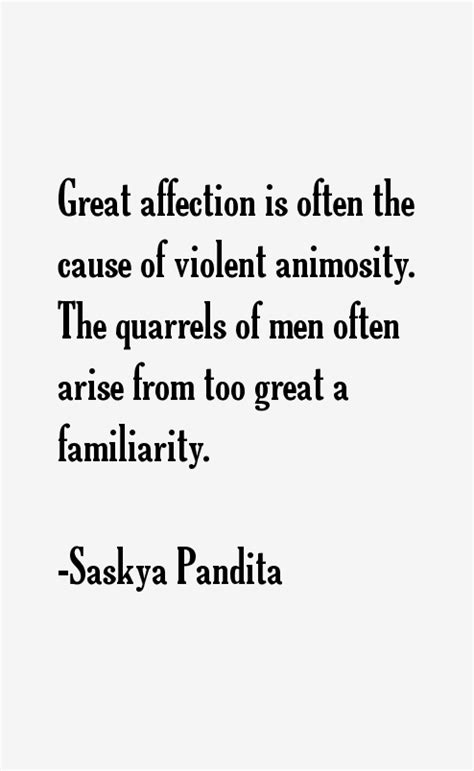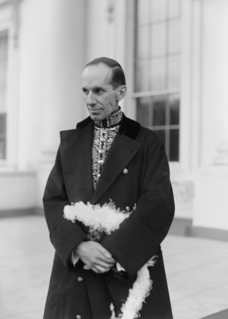A Quote by Blaise Pascal
On the occasions when I have pondered over men's various activities, the dangers and worries they are exposed to at Court or at war, from which so many quarrels, passions, risky, often ill-conceived actions and so on are born, I have often said that man's unhappiness springs from one thing alone, his incapacity to stay quietly in one room.
Related Quotes
Man is an Animal, formidable both from his Passions and his Reason; his Passions often urging him to great Evils, and his Reason furnishing Means to achieve them. To train this Animal, and make him amenable to Order; to inure him to a Sense of Justice and Virtue, to withhold him from ill Courses by Fear, and encourage him in his Duty by Hopes; in short, to fashion and model him for Society, hath been the Aim of civil and religious Institutions; and, in all Times, the Endeavour of good and wise Men. The aptest Method for attaining this End, hath been always judged a proper Education.
As soon as a man and woman of almost any age are alone together within four walls it is assumed that anything may happen. Spontaneous combustion, instant fornication, triumph of the senses. What possibilities men and women must see in each other to infer such dangers. Or, believing in the dangers, how often they must think about the possibilities.
The cruelest lies are often told in silence. A man may have sat in a room for hours and not opened his teeth, and yet come out of that room a disloyal friend or a vile calumniator. And how many loves have perished because, from pride, or spite, or diffidence, or that unmanly shame which withholds a man from daring to betray emotion, a lover, at the critical point of the relation, has but hung his head and held his tongue?
To the men exposed to his rule Lymond never appeared ill: he was never tired; he was never worried, or pained, or disappointed, or passionately angry. If he rested, he did so alone; if he slept, he took good care to sleep apart. “—I sometimes doubt if he’s human,” said Will, speaking his thought aloud. “It’s probably all done with wheels.
We are not born of the passions of war or of the fervours of revolution. And we grew quietly into the realization that, set as we are in a great wide land, with all our differences, there are certain traditions and ideals which we had in common, and which could best be preserved in a distinct society of our own.
[N]either in war nor yet at law ought any man to use every way of escaping death. For often in battle there is no doubt that if a man will throw away his arms, and fall on his knees before his pursuers, he may escape death; and in other dangers there are other ways of escaping death, if a man is willing to say and do anything. The difficulty, my friends, is not in avoiding death, but in avoiding unrighteousness; for that runs faster than death.





































